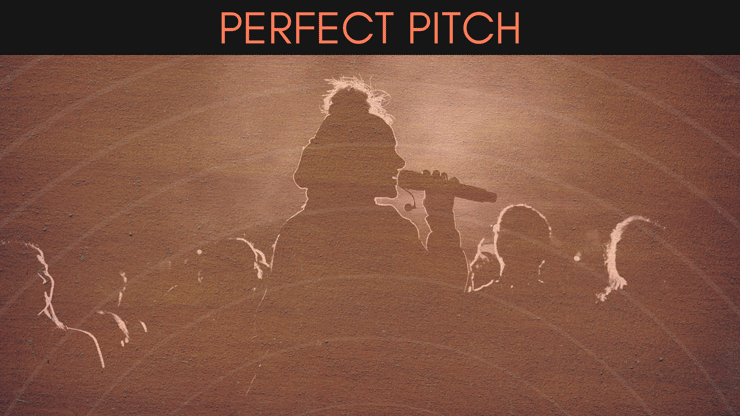Perfect Pitch
May 3, 2022
Perfect Pitch
Camille van Niekerk
Absolute pitch, also known as “perfect pitch” is the ability to identify and reproduce pitches “by ear”. Let’s define a few of those terms before diving deeper!
“Pitch” refers to the highness or lowness of a note.
When scientists talk about pitch, they’re likely to identify frequency in terms of hertz (Hz). For example: the pitch most orchestras “tune” their instruments to, before they begin playing, is 440 Hz.
When musicians talk about pitch, they’re likely to identify a pitch letter name and an octave number. The exact same pitch that orchestras tune to (440 Hz) is commonly called A4, or A440. This way of referring to pitches by their letter name and octave number is called “scientific pitch notation”. The octave number is important, because the musical alphabet only goes from A to G. That means there is more than one “A” you can sing or play, and the octave number identifies the pitch more specifically.
By the way, people will sometimes use the word “pitch” and “note” interchangeably. While a note technically has both pitch (highness or lowness) and rhythm (duration), it’s quite common to hear phrases like “what’s this note?” or “can you sing this note?”, and by “note”, that person probably means “pitch”.
“By ear” means “just by listening”, without the aid of a pitch reference or sheet music.
One way a person with absolute pitch “proves” that they do, indeed, have absolute pitch is by hearing a random pitch (say, the buzzing of the refrigerator or a car alarm), and identifying the pitch by letter name (and maybe octave number). Next, of course, you could check to see if they were correct by playing that pitch on a piano, app, or other instrument.
A person with absolute pitch is also able to produce a random pitch upon request. If your friend has perfect pitch and you ask them to sing a C4 (as long as that pitch is within their vocal range), they’d be able to. Again, you could check against another source to confirm that they were correct.
Is there a difference between absolute pitch and perfect pitch?
Technically, yes. Absolute pitch is the ability to identify pitches by ear. Perfect pitch is the ability to sing specific pitches without reference. Because these skills go hand-in-hand, and most people use them interchangeably, it’s safe to assume that if you have one, you have (or can easily develop) the other.
Can perfect pitch be acquired, or learned?
Most people say that no, perfect pitch cannot be learned. Rather, it’s an ability you’re born with. However, in order to “prove” they have perfect pitch, a person would need to learn scientific pitch notation (and maybe a little music theory), to assign names to the pitches they know.
For this reason, a person without musical training could have perfect pitch and not know it! Before training, a person with perfect pitch may assign a feeling (or even a color) to specific pitches. A friend with perfect pitch once shared that the pitch Db sounds warm, green and velvety. Perfect pitch isn’t the same as synesthesia, but there may be some overlap in brain function (see https://www.ncbi.nlm.nih.gov/pmc/articles/PMC3596158/).
A person without training might, for example, be able to sing the beginning of “Hey Jude” perfectly in tune, with no pitch reference. Only after training, they’d be able to identify that pitch as C4, along with the ability to sing a C4 “on demand” and identify a C4 from any other song or source.
It’s also worth noting that some musicians do “memorize” pitches by playing and singing them repeatedly. While that may be useful, it’s not the same as absolute pitch.
How common is absolute pitch?
It is very rare. The widely accepted estimate stands at “1 in 10,000”, though the evidence is scarce.
Don’t I need perfect pitch to be a good singer?
No, you don’t! What you need is great relative pitch, which can be learned. Relative pitch is the ability to sing specific pitches with a reference, following training in music theory and auditory skills. For example, if you first play a reference pitch (like C4), then ask for another pitch (like F#3), a singer with good relative pitch will be able to sing the F#3 (given that it’s within their vocal range). Musicians develop relative pitch by learning music theory, including the relationships between pitches (called “intervals”). They also train their ears to recognize these intervals (usually by referencing a well-known song), and they practice singing these intervals.
There you have it! Absolute or "perfect" pitch is not necessary to besome a great singer. You do need to train relative pitch, in addition to all the other skills required for great singing including breath control, vowel modification and more. While absolute pitch is something some people are born with, singing is a skill everyone can develop.


